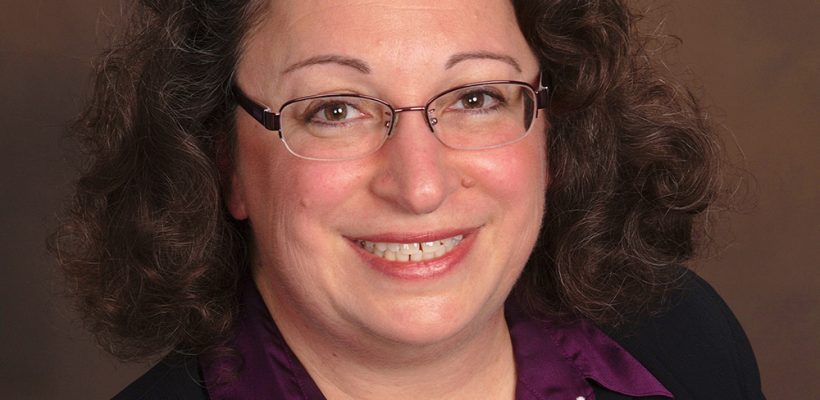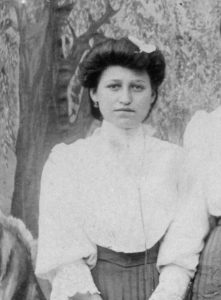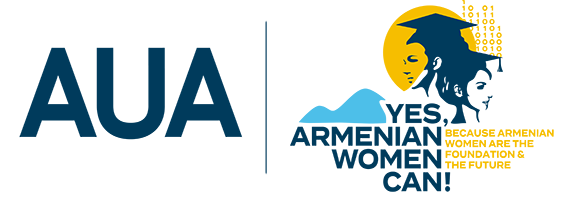
“THE LEGACY OF STRONG ARMENIAN WOMEN PAVES THE WAY FOR THE “YES, ARMENIAN WOMEN CAN!” CAMPAIGN
Marie, however, did not allow herself to become a victim. She kicked her acting experience into gear and created makeup out of dirt, flour and berries to disguise herself and her mother as diseased and sick. To add effect and ensure the Turkish soldiers would not come near them in fear of contracting the disease, she walked with a fake limp. Her impromptu performance worked and they were able to make it to Ourfa, where a German attempted to sell her to a prominent Turk for his harem. Negotiating herself out of that dreaded deal, she instead worked in slave-like conditions for another German, where she cooked, cleaned and cared for his children without pay and in return was kept “safe” from Turks. During this time she met an Armenian Evangelical pastor, Reverend Ephraim Jernazian, from Marash, who wanted to marry her. He was able to arrange for her release and they wed shortly thereafter, together managing an Armenian refugee camp in Ourfa. Remembering the significance of her own education, Marie created a vocational program for the women as she cared for her new daughter Alice. Marie soon become pregnant again and they were happy to be expecting another child.
However, Rev. Ephraim was arrested by Turkish authorities, falsely accused of treason, put in prison and sentenced to death. Marie gave birth to the new baby shortly after he entered prison. She feared that baby Samuel would not survive because she herself was starving and could not feed him. While Rev. Ephraim remained in jail for two years, Marie cared for her children as best as she could by selling her needlework; she smuggled food into the prison for her husband so he wouldn’t succumb to malnutrition. When all hope seemed lost, a friend of Rev. Ephraim’s, who was a brave and compassionate Turkish official, arranged for Rev. Ephraim’s secret escape. In order for the plan to come to fruition, Marie would have to travel with their children to Aleppo, Syria, where Rev. Ephraim would eventually reunite with them. She refused, but he finally convinced her this was their only chance at survival. Marie arrived in Aleppo soon thereafter with the children, but was without money or food; she was able to stay with a friend fortunately. As the weeks passed in silence, she worried her husband had been killed.
Suddenly one day, she heard a knock on the door. When she opened it, she saw a man with white hair. The room fell silent. Rev. Ephraim, whose hair had turned from chestnut brown to stark white during his arduous escape, was alive. Samuel, who had never set eyes on his father, somehow knew instinctively that this was Papa and ran to greet him. The family soon immigrated to the United States through Ellis Island in 1924, thanks to a missionary friend in Scotland. Marie again set to work, spending hours working in a necktie factory until her husband was assigned to a parish in New Hampshire. Together, over many decades, they served Armenian Evangelical churches throughout New England, from New York to Massachusetts to Rhode Island, as Marie dutifully carried out her role as “Yeretsgin.” A gifted storyteller, she wrote and directed plays for the parish’s children to perform in the church, taught Sunday School and was always hospitable and welcoming to everyone in the church community.
 Kharpert has now become Harpoot and the once dominant Armenian population there ceases to exist. But what does still remain relevant is the dignity, the grace and the intelligence in Marie Hovagimian Jernazian that she passed onto her children and her grandchildren, notably Dr. Susan Jerian, a specialist in oncology, who grew up across the street from her grandmother, where she would spend hours listening to her stories and drawing on her strength as an educated Armenian woman.
Kharpert has now become Harpoot and the once dominant Armenian population there ceases to exist. But what does still remain relevant is the dignity, the grace and the intelligence in Marie Hovagimian Jernazian that she passed onto her children and her grandchildren, notably Dr. Susan Jerian, a specialist in oncology, who grew up across the street from her grandmother, where she would spend hours listening to her stories and drawing on her strength as an educated Armenian woman.
“I want Armenians to know that the education of women has long been a part of Armenian culture,” said Susan. “There are some people out there saying that educating women will damage the Armenian family culture, but that is not correct; in fact, educating women will greatly enhance the family.”
Dr. David Essayan, Susan’s husband and an accomplished immunologist and scientist, notes the following: “Supporting the education of women in science, business and the arts is of vital importance to Armenia and to the global society. Women are intrinsically insightful and collaborative. They lead by example and with grace. These leaders will shape our future in positive ways, but only if we provide to them the same opportunities that are provided to men. This program helps to achieve that goal. The result will be a better Armenia for all of its citizens.”
As long-time AUA supporters, Susan and David, who are also Pillars of the University, have been advocates of the “Yes, Armenian Women Can!” campaign, launched earlier this year to provide scholarships for female AUA students studying in the STEM fields, including science, technology, engineering, and mathematics.
Susan said it was a “no brainer” for her and David to support the campaign because of the positive impact it will have for Armenia’s future.
It is only through education that women can achieve their goals, according to Susan who emphasizes that education can never be taken away from someone and can help women overcome challenges while benefiting their “family, community and country.”
As significant as education is to Susan, so are successful women role models to inspire the next generation, including her own grandmother Marie, who served as her mentor and role model.
“Her vision of a woman’s role was large and vibrant and exciting,” said Susan. “She imparted that vision onto her grand-daughters on a daily basis.”
Marie was not only a devout Christian who nurtured her family, but she also sought to make positive contributions to her community and understood that in order to do so, “the first step was to obtain the best possible education.”
Susan believes it was her grandmother’s education that gave her the “confidence, knowledge and analytical thinking that helped her keep her family alive during that time of atrocities and then to flourish in their new life in the United States.”
Education remained a priority in Marie’s life and she made sure her children, Alice and Samuel, followed suit, supporting their studies during college and graduate school. Susan recalls, “My father, Samuel, was a big advocate of a university education and of women reaching as high as possible in their education and careers; he enthusiastically encouraged me to go into science and medicine. He used to say, “A woman can do anything a man can do and don’t let anyone tell you otherwise!’ ”
“Similarly, my grandmother encouraged me to pursue my dream to not only become a physician, but to become a physician who made a difference in the world,” said Susan.
Fulfilling her grandmother’s wishes, Susan has indeed become an impactful member of society and to the AUA community, a University she believes provides a high quality of education that values “honesty, integrity and fairness.”
“AUA is ensuring that the future of Armenia is one of prosperity, creativity, innovation and excellence,” said Susan. “AUA is a beacon of hope that empowers its students to be successful, not just on the Armenian stage, but also on the global stage.”
When Marie received her diploma over a century ago, little did she know that piece of paper would set into motion her survival – and a lifetime legacy of empowered women.
Susan and David are honored to support the AUA “Yes, Armenian Women Can!” campaign in honor of Marie Hovagimian Jernazian.
